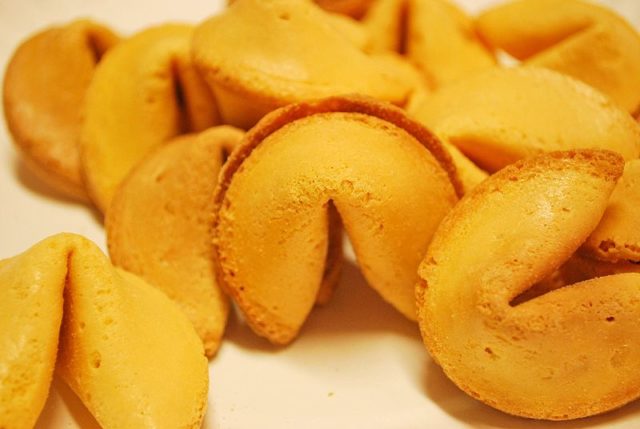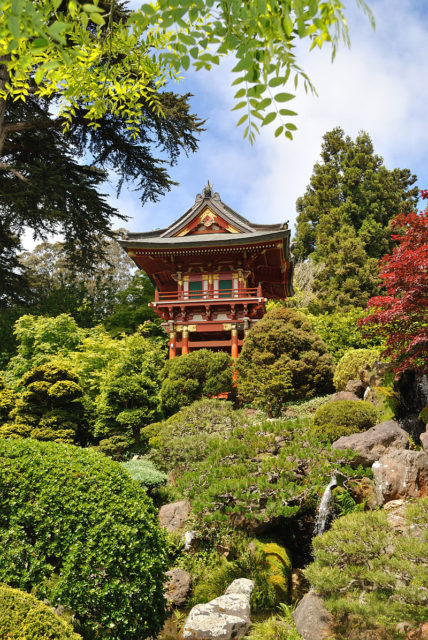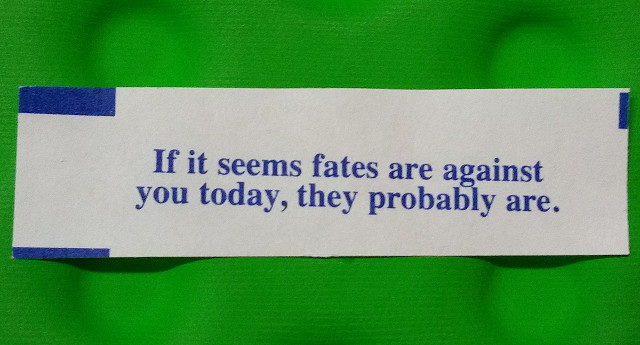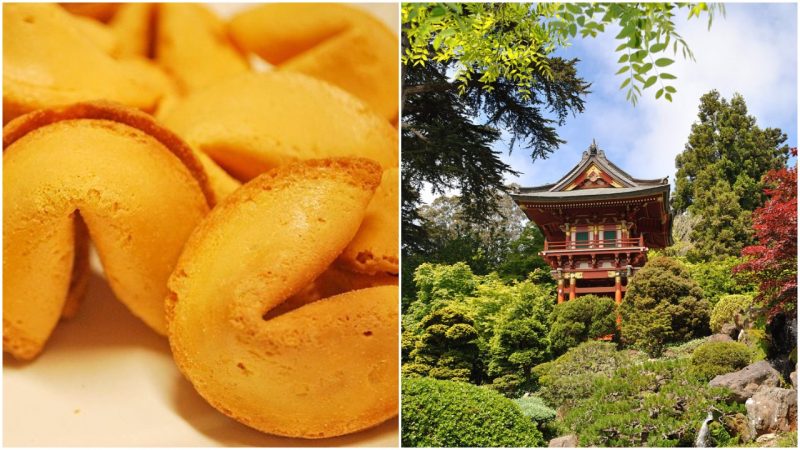Fortune cookies are a standard dessert in Chinese restaurants worldwide. They are usually small crisp treats made from sesame seed oil and vanilla, and they contain a piece of paper with a written aphorism, advice or a prophecy.
Many people consider fortune cookies to be a traditional Chinese dessert, but this is a huge misconception. Fortune cookies have never been a part of the traditional Chinese cuisine, and, in contemporary China, they can only be found in restaurants which target Western tourists.

Fortune cookies are, in fact, a Japanese invention, popularized in the United States in the early 20th century by Japanese immigrants. Japanese traditional cuisine includes the “omikuji,” which are random fortune cookies, very similar to the famous fortune cookies of today. This tradition originated in Kyoto in the early 19th century.
The person who popularized fortune cookies in the United States was Makoto Hagiwara, a Japanese immigrant who was responsible for the creation of the Japanese Tea Garden at the Golden Gate Park in San Francisco, California. Hagiwara started serving fortune cookies alongside tea in the early 1890’s, and they became popular among the middle and upper class of the time. The cookies were produced by Benkyodo, a Japanese-owned bakery in San Francisco.

Until the end of the World War II, fortune cookies were known as “fortune tea cookies” and were always associated with the Japanese. However, after the WWII, Chinese American manufacturers started producing and selling them to the owners of Chinese restaurants.
At the time, fortune cookies became increasingly associated with Chinese culture. Some historians claim that the Japanese restaurants of the time were losing customers because many Americans of the late 1940’s resented Japan’s actions in the WWII and didn’t want to be associated with Japan in any way. This proved to be an excellent business opportunity for the owners of the Chinese restaurants, as they quickly popularized fortune cookies as a part of Chinese tradition.

In the early 1990’s, a major manufacturer and distributor of Asian food, named Wonton Food Inc., tried to popularize fortune cookies in China and Hong Kong, but their efforts proved to be a massive fail.
Read another story from us: Fengguan: a masterpiece of traditional Chinese jewelry
Namely, they advertised their fortune cookies as “genuine American fortune cookies, ” and the Chinese never adopted the tradition for they considered the cookies too American.
